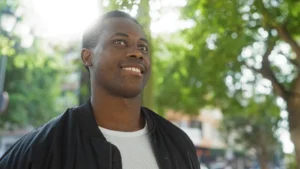 Narcissistic Traits
Narcissistic Traits
There are a considerable number of problems that come with dating a narcissist. Nevertheless, many people are drawn to narcissistic relationships. Studies have found narcissists to be more desirable and attractive to people as potential dates. Yet, entering a relationship with a narcissist can ultimately leave a person feeling like they’ve lost themselves as their partner becomes the focus of their energy and attention. However, even after a strained relationship, narcissists can be hard to leave.
It’s no real surprise that a person would be drawn to someone with narcissistic traits. They can be charismatic and bring a lot of energy into a room. “Narcissistic persons can be very charming and likable at first, they can delight us and seduce us, they can be interesting and funny, mysterious and exciting,” said Bojana Dinić, an associate professor who recently completed a study on the love styles of narcissists. “However, in long-term relationships, their true nature comes out and we remain to wonder whether it is the same person from the beginning of our relationship.”
The early stages of romance with a narcissist can be very passionate and exciting. There may be a sense that if this “great,” special, larger than life person chose me, then I, too, must be special. Narcissists can be prone to falling madly in love with someone instantly and can be very quick to commit. However, this initial love and commitment are not easily sustained.
In time, some negative traits start to emerge. Narcissists tend to be controlling, possessive, and jealous. They may demand attention, seeking reassurance and build up. They may feel easily hurt and focus excessively on their own wants and needs. If we injure their inflated self-perception, a narcissist often lashes out. Their communication can be cutting, making the other person feel low or less than.
When someone is in the throes of a relationship with a narcissist, it’s not unlikely that they’d feel isolated. A narcissistic partner may consume their energy or even try to limit their contact with others. Much of their time and attention will go to the narcissist’s desires, needs, and emotions, and therefore, their own may be neglected. With all of these challenges and negative aspects of the relationship, why is it then so hard to leave a narcissistic partner?
A narcissist can make us feel needed.
The fact that a narcissistic person demands a lot of their partner is no great surprise. One recent study showed that narcissism is actually “driven by insecurity, and not an inflated sense of self.” In this way, although they may put on an air of confidence in public, privately much of their identity feels fragile. Thus, when we are close to a narcissist, we may become an instrument they employ to try to buoy themselves up or feel good about themselves. They may feel like if their self-image gets one crack in it, it may all come crumbling down. Because of this, we may feel very guilty to leave a narcissist.
Narcissists can make us feel special.
Even though a narcissist can take up a lot of space in our lives and keep us in their shadow, we may feel like we’re basking in their glow by staying close to them. If we were to lose them, we would also lose the spotlight that shines on them. We may feel resistant to leaving, because we’re afraid of sacrificing the feeling of specialness we gained by being linked to them.
We can feel like we’re losing ourselves.
Because in a narcissistic relationship we have taken on so many of the other person’s struggles and so much of their identity as our own, we may feel like we’d be giving up part of ourselves if we were to leave them. If they have become the center of our world, we may then feel lost without them. Thus, even though the relationship has dark aspects, we imagine we’ll be left completely in the dark if we walk away.
Narcissists mess with our self-esteem.
Sadly, we all have a side of us that doubts and diminishes who we are. We all possess a “critical inner voice” that tells us we are unworthy or undesirable in all kinds of ways. Being with a narcissist may make us feel a little better about ourselves in some respects, because we feel good that someone with such a seemingly high opinion of themselves chose us. Our partner may also build us up, making us feel special as their significant other, because they would only be with someone who was special.
On the flip side, a narcissistic partner may make us feel small by putting us down when they feel challenged or when we are failing to meet their exaggerated need for praise. Or, they may do so by ignoring us altogether, making us feel unworthy. These ways of being treated support our already negative attitudes toward ourselves, and our critical inner voice is likely to become stronger. While it can be painful to listen to the self-attacks of this inner critic, it’s also something we all struggle to challenge. This is because we tend to internalize much of its messaging as our own point of view, rather than seeing the external forces that shape it throughout our lives.
We’ve gotten hooked on the push and pull.
Relationships with a narcissist have many highs and lows. “The common characteristic of all kinds of narcissistic love is mania,” said Dinić. Narcissism is often associated with a “game-playing love style.” One minute, our partner may be making us feel like the center of their universe. The next, we may seem like their last priority. A narcissist may give us little attention when we’re there for them, but confront us with big emotions when we’re not.
While we may feel overwhelmed, confused, or frustrated by this dynamic, we can also get hooked on it. The push and pull from the other person can make them more alluring, even addictive. We may believe we need that passionate, exciting love back to feel worthy within ourselves. As one partner of a narcissist described it to me, “If I can get her to love me, then I am truly special.”
Because we feel lost and like we have nothing without the other person, we may stay with them and keep trying to get their spotlight back on us. This dynamic can be particularly enticing for people who experienced an insecure attachment pattern early in their lives where they felt they couldn’t get their needs met or didn’t feel consistently nurtured or loved. The intermittent reenforcement they get from a narcissist, in all its sparkly excessiveness, can feel like something they need in order to feel okay within themselves.
Narcissists can recreate our past.
There are often reasons from our own history that draw us to a narcissist. These reasons are usually based on our early relational experiences and attachment patterns. If we had a parent who needed us to reassure them or who flipped roles and made us take care of them, then devoting ourselves to someone with similar self-centered patterns will feel familiar.
If we grew up feeling anxious like we just couldn’t get the love or attention we needed from a primary caretaker, then staying in a relationship where we feel this same sense of desperation can be something to which we’re unconsciously drawn. These dynamics may be unpleasant, but they’re familiar. We feel a push to recreate them, because they are the models we learned for how relationships should work.
Because the forces that draw us to relationships with a narcissist have a lot to do with our own internal patterns and personal histories, breaking away from a narcissist can require some self-reflection. Chances are, we may be struggling with our own sense of self or injuries from past relationships that lead us to get stuck in painful patterns with a current partner. By looking at what draws us to a narcissistic person, what dynamics being with them recreates and what negative self-concepts it reinforces, we can learn a great deal about ourselves. We can then start to challenge those patterns and ideas. We can break free from relationships that limit and hurt us. Finally, we can orient ourselves to choose healthier, more fulfilling, and equal relationships in the future.

